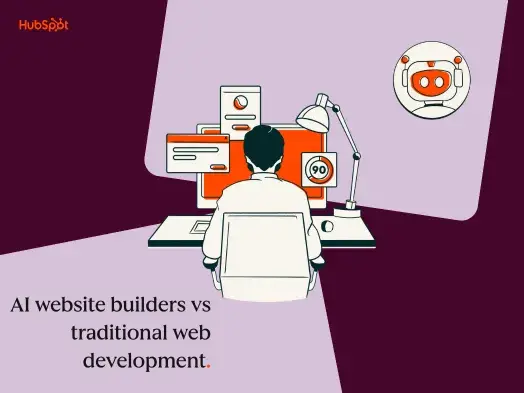The Evolution and Future of Code Generators
In the initial stages, code generators were primarily about templates and snippets, simple tools designed to alleviate the tedious task of writing repetitive lines of code. These utilities were straightforward, offering basic automation but lacking the intelligence to adapt or optimize the coding process. They were convenient, saving time and reducing errors but were far from being a dynamic partner in the coding journey.
The introduction of AI and machine learning signified a pivotal moment in the evolution of code generation. Tools started to become more intelligent, not just automating tasks but offering insights, optimizations, and even potential innovations. They transitioned from being passive utilities to active partners, equipped with the capacity to learn, adapt, and enhance the coding process. GitHub Copilot, Amazon Codewhisperer, and Tabnine are contemporary exemplars of this evolution, each embodying a distinct blend of AI-powered intelligence and user-centric design.
Looking ahead, the future of code generation is teeming with possibilities. We're on the cusp of an era where AI doesn’t just assist but collaborates, where code generators are not just about efficiency but innovation. The ongoing advancements promise a future where the synergy between human ingenuity and machine precision reaches unprecedented levels of creativity and efficiency. In this evolving narrative, the role of tools like Copilot, Codewhisperer, and Tabnine is not just instrumental but transformative, marking strides toward a future where coding is as much about the journey as it is about the destination.
So, let's get into the specifics and start the real comparison.
Which AI Tool is Best at Generating Code?
Platform 1: GitHub Copilot

My journey with GitHub Copilot was akin to stepping into a realm where creativity and efficiency seemingly merged. The anticipation was tangible - after all, this was a product associated with GitHub, a name almost synonymous with coding excellence.
The Pros of GitHub Copilot
I was initially taken aback by the ease with which Copilot nestled into my coding routine. It was not just a tool; it felt like a companion. It was intuitive, offering code suggestions that often felt like it was reading my mind. I found myself navigating through lines of code much faster, a breeze of efficiency that every developer seeks.
In projects that required a diverse language set, Copilot was versatile. JavaScript, Python, Ruby - it maneuvered through them with a grace that was both admirable and, I’ll admit, a bit relieving. There were moments of undeniable awe, where complex problems met elegant solutions, thanks to Copilot’s suggestions.
The Cons of GitHub Copilot
Yet, every rose has its thorns. GitHub Copilot was not without its quirks. There were instances where the code suggestions were not as accurate as I’d hoped. A few times, I found myself sifting through the suggestions, trying to find the one that resonated with the task at hand - not exactly the seamless experience I was rooting for.
And let’s talk about the originality of code. Copilot, in its enthusiasm to be helpful, sometimes leaned towards generic code snippets. For seasoned coders who pride themselves on crafting unique, efficient codes, this could be a bit of a letdown.
The Balance
Navigating the landscapes of GitHub Copilot was like a dance between expectation and reality. There was the undeniable genius of AI, the moments where codes flowed seamlessly and problems found their elegant solutions. Yet, there were also moments of pause, where the human touch, the coder’s intuition, still proved irreplaceable.
In the grand scheme of things, Copilot emerged as a worthy companion, not without its flaws, but with merits that are hard to overlook. It’s a glimpse into a future where human ingenuity and artificial intelligence don’t just coexist but collaborate, each filling the spaces where the other falters.
Platform 2: Amazon Codewhisperer
After delving into GitHub Copilot, my next exploration led me straight to Amazon Codewhisperer. With a combination of excitement and careful optimism, I was all set to dive in.
The Pros of Amazon Codewhisperer
The first impression was promising. Here was a tool embedded with the wisdom of Amazon's expansive cloud infrastructure. Each feature, every nuance, seemed designed to whisper the secrets of efficient coding into my ears. Codewhisperer offered more than just code suggestions; it was akin to having a seasoned mentor peering over my shoulder, ready to guide, ready to enlighten.
Errors and bugs, the notorious adversaries of a coder’s peace, met their match in Codewhisperer. The tool demonstrated a keen eye, identifying and flagging errors with precision. It wasn’t just the detection but the accompanying insights and suggestions that won me over. Here was learning and doing, seamlessly intertwined.
The Cons of Amazon Codewhisperer
Yet, amidst this harmony, a few inconsistencies emerged. The user interface, though rich, wasn’t the most intuitive. A tool endowed with such wisdom should ideally be easier to navigate, and more welcoming. At times, I felt like a sailor navigating the oceans without a compass - awe-inspired but slightly overwhelmed.
Moreover, while Codewhisperer's recommendations were often insightful, there were moments when they seemed too generic. I was left craving for more customized, creative solutions. I sought suggestions that were not just functional but also inventive, that could echo the unique needs and aspirations of each project rather than offering one-size-fits-all solutions.
Striking a Chord
Using Amazon Codewhisperer was a journey filled with ups and downs. There were enlightening moments when coding solutions became crystal clear, and the software’s ability to pinpoint and understand bugs was nothing short of impressive. However, there were also moments of reflection and pause, times when I wished the insights provided by Codewhisperer were more pronounced and articulate.
Platform 3: TabNine

The journey through the diverse landscape of AI code assistance led me to Tabnine. After experiencing the multifaceted offerings of GitHub Copilot and the complexities and insights provided by Amazon Codewhisperer, my expectations were as varied as a kaleidoscope's ever-changing patterns. I approached Tabnine with an open mind, prepared to be either impressed or let down.
The Pros of TabNine
Tabnine felt like a breath of fresh air. It was uncomplicated, yet sophisticated - a paradox that I found both refreshing and intriguing. Autocomplete is its forte, and, dare I say, it does it with an elegance that had me tipping my hat. With every line of code, Tabnine was right there, offering suggestions that felt intuitive and, at times, inspired.
The Cons of TabNine
Tabnine, for all its intuitive genius, sometimes got a bit overzealous. Autocomplete suggestions, though mostly spot-on, at times, veered into the realm of the irrelevant. It was a reminder that while AI can echo human intuition, mirroring the intricate nuances of a coder’s thought process is a frontier yet to be fully conquered.
In Retrospect
Tabnine impressed with its quick and intuitive suggestions, enhancing coding efficiency. However, it didn’t escape moments of overzealousness and verbosity, striking a balance between the optimism for future AI advancements and the current imperfections we still need to navigate.
What We Measured
In evaluating each AI code-generating tool, our assessment was grounded in specific, well-defined criteria that encompassed both technical performance and user experience.
- Efficiency and Accuracy: The accuracy of the generated code was a primary focus. We evaluated how effectively each tool translated user input into correct and efficient code.
- User Experience: User experience was another critical aspect. The intuitiveness of the interface, ease of navigation, and overall user comfort played a pivotal role in our assessment.
- Innovation: We also looked at the level of innovation each tool offered. We were interested in understanding how each AI code generator could push the boundaries and offer unique, creative coding solutions that go beyond standard or traditional approaches.
- The Personal Touch: Additionally, we assessed the quality of the code in terms of its customization and uniqueness. We wanted tools that didn’t just provide generic solutions but offered personalized, tailored coding solutions that adapt to the specific needs and challenges of each project.
The Verdict
After thorough exploration and analysis, our insights into GitHub Copilot, Amazon Codewhisperer, and Tabnine are as diverse as they are enlightening. Each platform demonstrated unique strengths and weaknesses. However, one stood out with a balanced offering of efficiency, user experience, and innovation - GitHub Copilot.
GitHub Copilot
GitHub Copilot emerged as the front runner in our evaluation, marking itself as a balanced combination of intuitive suggestions, language versatility, and user-friendly interaction. While it had its moments of imperfection, offering suggestions that were not always spot on, the overall utility and assistance it provided overshadowed these shortcomings. Copilot's adeptness at offering real-time, contextually relevant coding suggestions demonstrated a maturity and refinement in AI code generation.
Amazon Codewhisperer
Amazon Codewhisperer, on the other hand, stood out for its robust error detection and insightful recommendations. However, it has room to improve in terms of user interface and navigation, which can occasionally feel overwhelming. Its recommendations, while useful, could benefit from being more customized and focused.
Tabnine
Tabnine is celebrated for its speed and the intuitive nature of its autocomplete feature. Yet, it has its shortcomings, including at times providing overly verbose or irrelevant code suggestions. The tool balances the anticipation of AI’s future role in coding with the current reality of its limitations.
Final Reflection
GitHub Copilot managed to strike a delicate balance, offering a user experience that was as enriching as it was efficient. The tool wasn’t without its flaws, but its adaptability, intuitive interface, and quality of code suggestions marked it a step ahead in the ongoing journey of AI and human collaboration in coding.
In the narrative of AI code generation, GitHub Copilot is a chapter where we begin to see the tangible harmony between machine learning and human creativity – not perfect but promising, not absolute but evolving towards a synergy where each code isn’t just written but is crafted with a blend of AI efficiency and human ingenuity.
Artificial Intelligence












